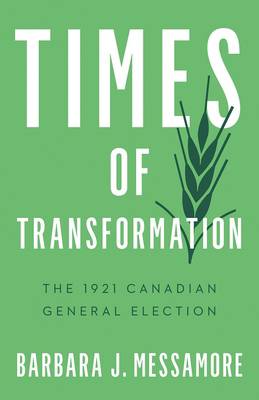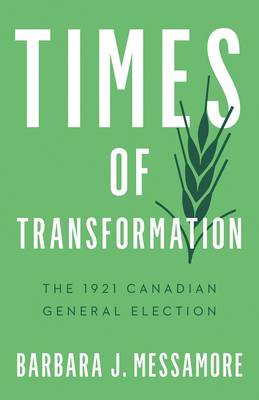
- Retrait gratuit dans votre magasin Club
- 7.000.000 titres dans notre catalogue
- Payer en toute sécurité
- Toujours un magasin près de chez vous
- Retrait gratuit dans votre magasin Club
- 7.000.000 titres dans notre catalogue
- Payer en toute sécurité
- Toujours un magasin près de chez vous
Description
Studies the significance of the 1921 Canadian election, the first after World War I. Times of Transformation positions the watershed 1921 Canadian federal election in the context of activist efforts and the revolutionary mood in the years following the Great War. New Liberal leader William Lyon Mackenzie King, who went on to become Canada's longest-serving prime minister, came to power, with his party capturing every Quebec seat. This election brought many Canadian firsts: women were eligible to vote for the first time; it was the first minority government; and it was the first effective fracturing of the two-party system, with the establishment of a federal Labour party and the dramatic rise of the Progressives. These changes had been brewing before the end of the war. The Progressive Party owed its success to the increased politicization of farmers and the concerns of the Western voting base. Suffrage came after a decades-long battle for political rights for women. Labor strikes swept the nation in the post-Great War era and a new national Labour party gained Commons representation. In short, this election manifested long-building forces for change and the global zeitgeist of postwar disillusionment and hope.
Spécifications
Parties prenantes
- Auteur(s) :
- Editeur:
Contenu
- Nombre de pages :
- 328
- Langue:
- Anglais
- Collection :
Caractéristiques
- EAN:
- 9780774870597
- Date de parution :
- 06-05-25
- Format:
- Livre broché
- Format numérique:
- Trade paperback (VS)
- Dimensions :
- 140 mm x 216 mm
- Poids :
- 453 g







